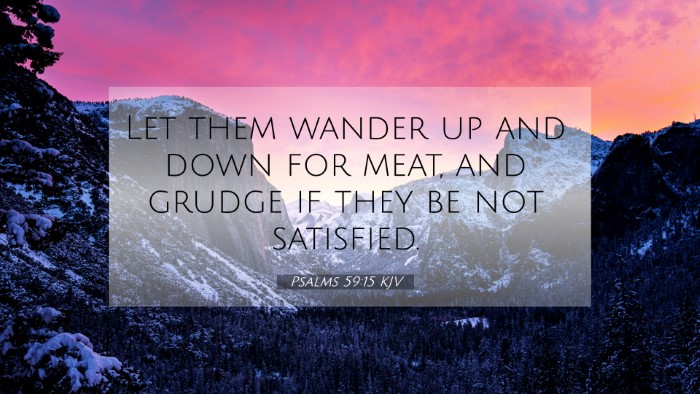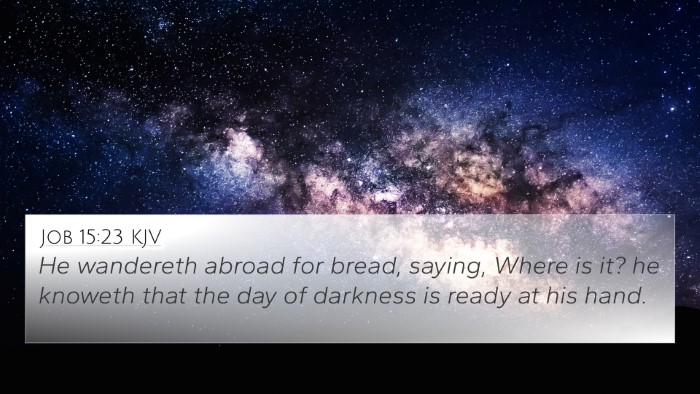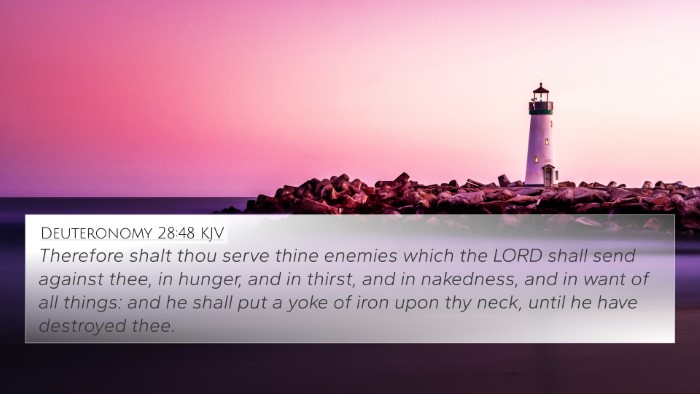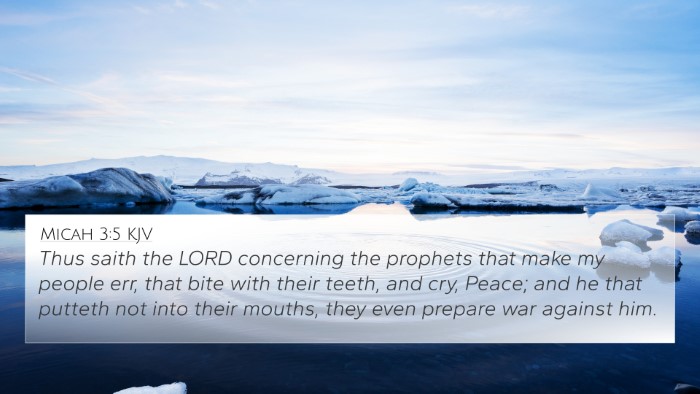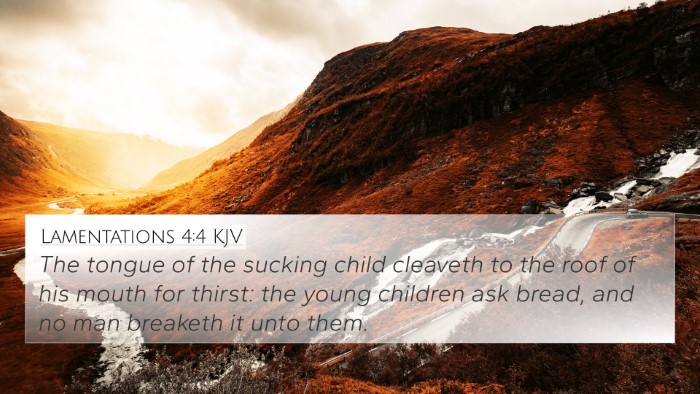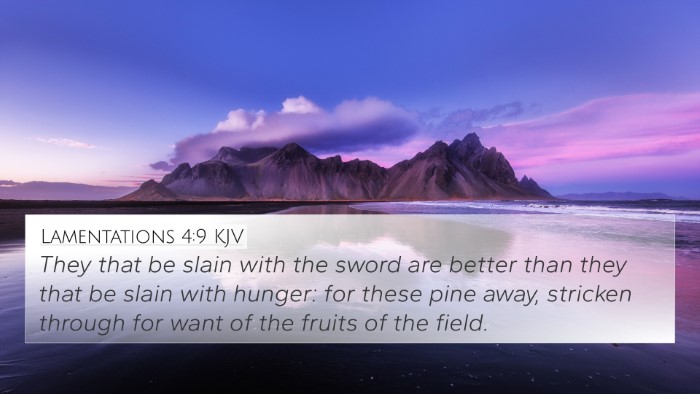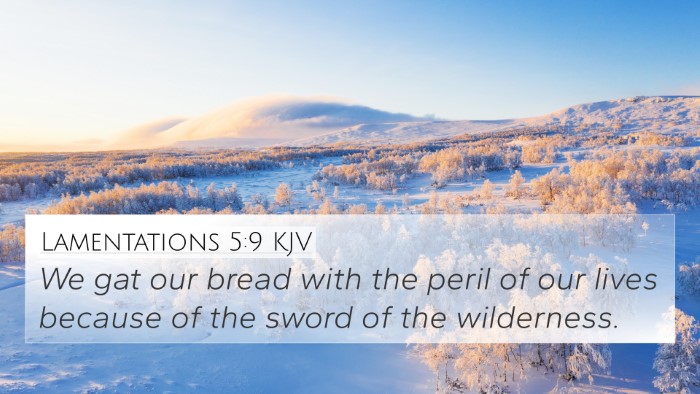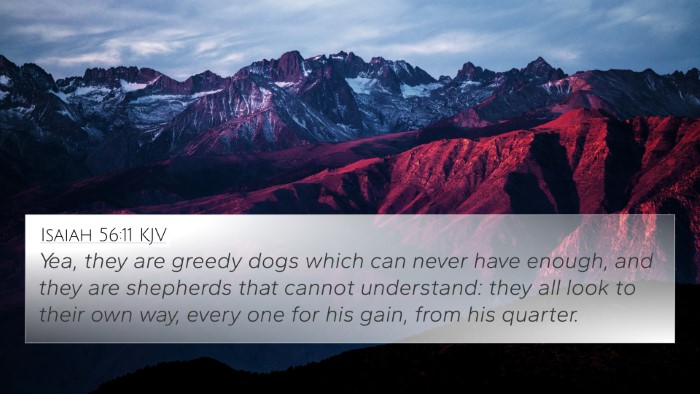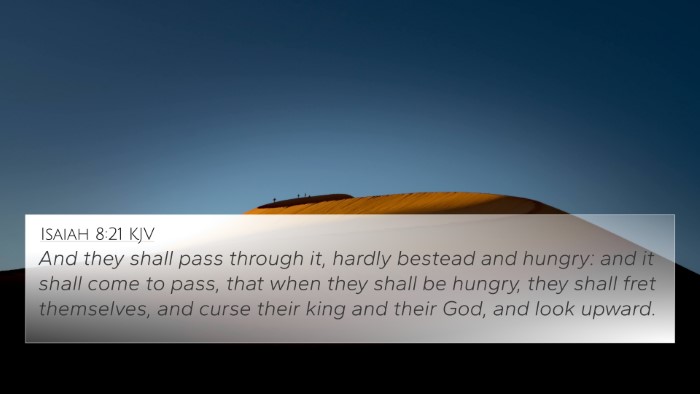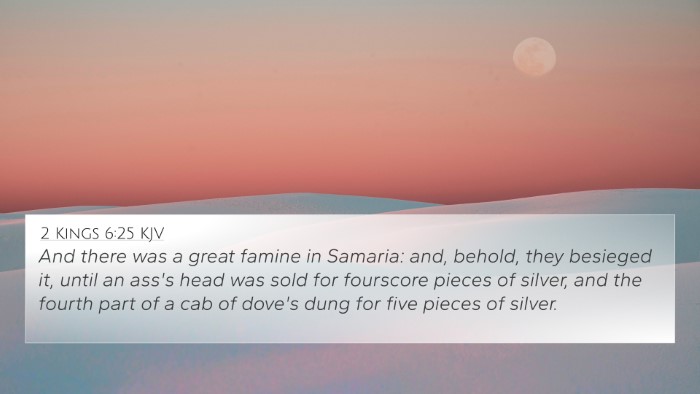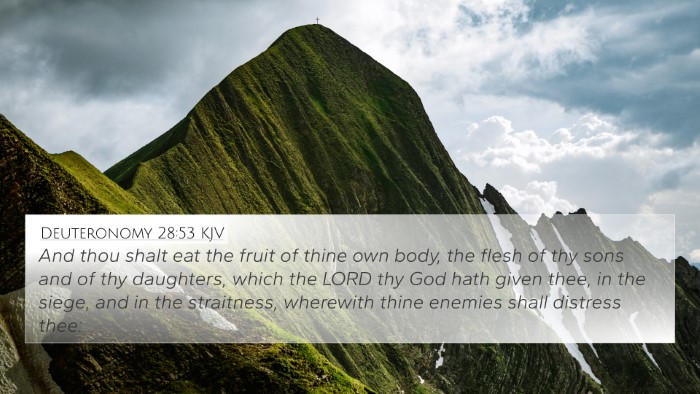Psalms 59:15 - Summary and Interpretation
Bible Verse: Psalms 59:15
"Let them wander up and down for meat, and grudge if they be not satisfied."
Verse Meaning and Commentary Overview
This verse from the Book of Psalms reflects the feelings of despair and anguish experienced by the psalmist. In this context, it is essential to understand the underlying themes of lament, divine justice, and the human condition.
Insights from Public Domain Commentaries
-
Matthew Henry's Commentary
Matthew Henry interprets this verse as highlighting the restless and unsatisfied nature of the wicked. He emphasizes that they constantly seek what they cannot attain and that their insatiable desires reflect their spiritual emptiness. This wandering is a metaphor for their tumultuous lives, lacking peace and satisfaction.
-
Albert Barnes' Notes
Albert Barnes views this verse through the lens of divine justice. He suggests that the imagery of wandering for food symbolizes the pursuit of sustenance that ultimately leads to frustration and suffering. Barnes points out that the psalmist is contrasting the fate of the righteous, who find contentment in God's provision, with the fate of the wicked, characterized by dissatisfaction and despair.
-
Adam Clarke's Commentary
Adam Clarke associates this verse with the broader narrative of the Psalms, emphasizing the idea that the enemies of the psalmist are perpetually seeking after their desires yet are never fulfilled. Clarke discusses the psychological implications of this relentless pursuit and its consequences for both individuals and communities, highlighting the contrast between the righteous and the unrighteous.
Key Themes in Psalms 59:15
- Restlessness of the Wicked: The verse illustrates the anxiety and dissatisfaction that plague those who oppose God.
- Divine Retribution: There is an underlying assurance that God sees the plight of the righteous and the futility of the wicked's pursuits.
- Contrast between Righteousness and Wickedness: The satisfaction found in righteousness is starkly contrasted with the emptiness of a life pursuing sin.
Bible Cross References
- Psalm 37:12-13: "The wicked plots against the just, and gnashes upon him with his teeth. The Lord shall laugh at him: for he sees that his day is coming."
- Isaiah 57:20-21: "But the wicked are like the troubled sea, when it cannot rest, whose waters cast up mire and dirt. There is no peace, says my God, to the wicked."
- Ecclesiastes 6:7: "All the labour of man is for his mouth, and yet the appetite is not filled."
- Proverbs 13:25: "The righteous eats to the satisfying of his soul: but the belly of the wicked shall want."
- Matthew 5:6: "Blessed are they which do hunger and thirst after righteousness: for they shall be filled."
- James 4:2: "You lust, and have not: you kill, and desire to have, and cannot obtain: you fight and war, yet you have not, because you ask not."
- John 6:35: "And Jesus said unto them, I am the bread of life: he that comes to me shall never hunger; and he that believes on me shall never thirst."
- Philippians 4:19: "But my God shall supply all your need according to his riches in glory by Christ Jesus."
- 1 Peter 2:11: "Dearly beloved, I beseech you as strangers and pilgrims, abstain from fleshly lusts, which war against the soul."
Thematic Connections with Other Scriptures
Analyzing Psalms 59:15 within the broader biblical narrative reveals several thematic connections and parallels:
- Hunger for Righteousness: The unfulfilled longing of the wicked can be juxtaposed with the appeal to seek wisdom and righteousness found in Proverbs.
- The Nature of Evil: The depiction of the wicked in this verse resonates with Jesus’ teachings on hypocrisy and emptiness in Matthew.
- Restlessness and Discontent: The wicked's unrest as described in Isaiah parallels themes in Ecclesiastes about life's futility when disconnected from God.
Understanding Through Cross-Referencing
Using tools for Bible cross-referencing, such as a concordance or cross-reference guide, allows for a deeper study into the implications of verses like Psalms 59:15. By identifying connections between various scriptures, readers can see the overarching narrative of divine justice and the contrast between the fates of the righteous and the wicked. A proper cross-reference Bible system can aid in sermon preparation, personal study, and enriching one’s understanding of the scriptures.
Conclusion
Psalms 59:15 presents a vivid picture of unrest and longing experienced by the wicked, serving as a reminder of the fulfillment found in a relationship with God. By exploring cross-references, readers can gain a holistic understanding of Biblical teachings and how they interconnect, enhancing their study of the scriptures.


